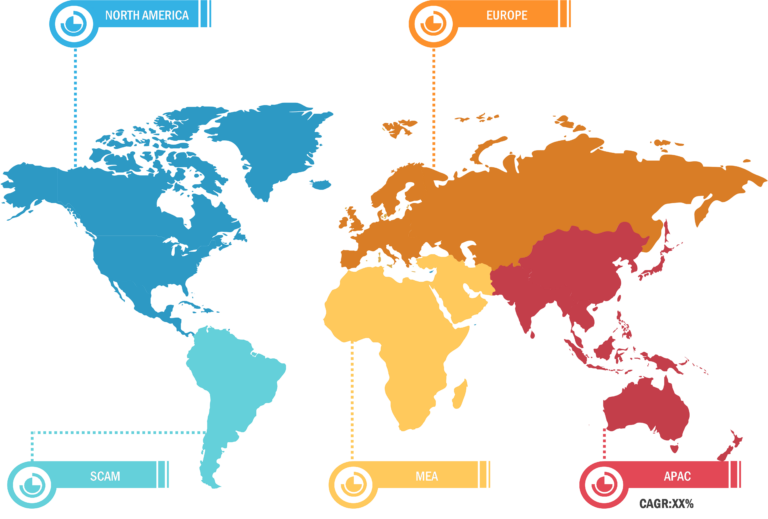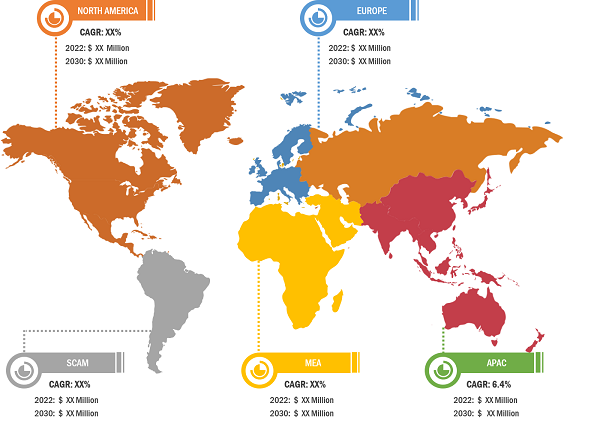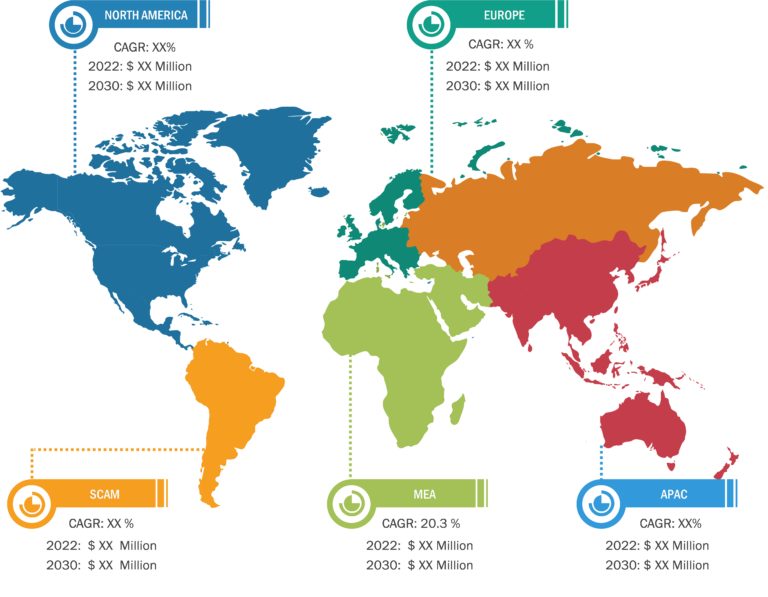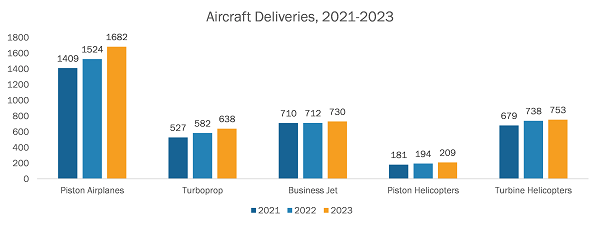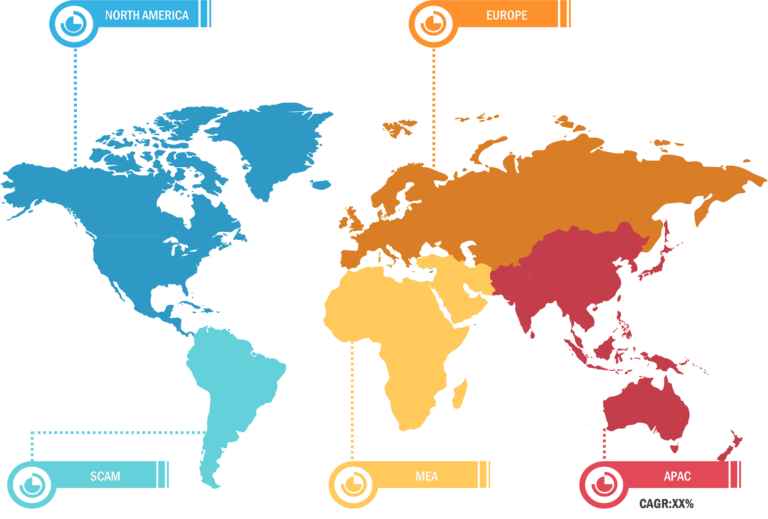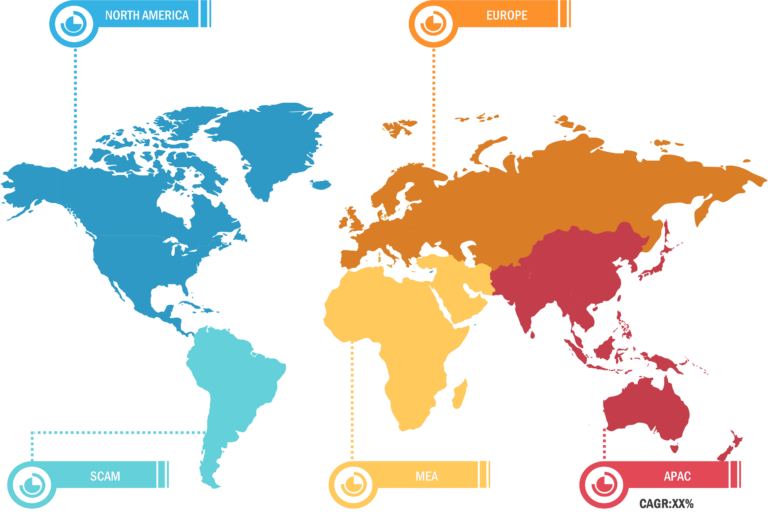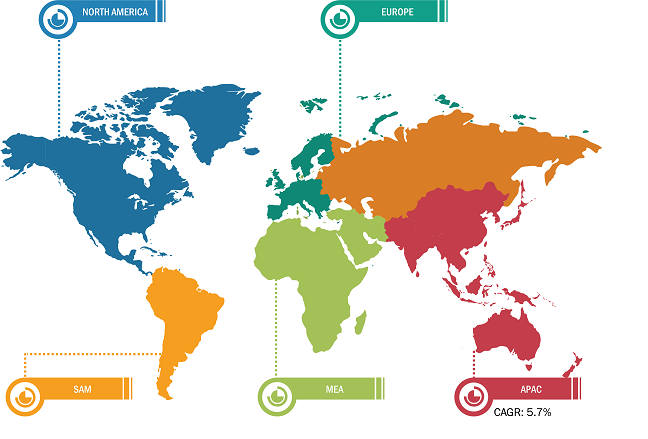
Empty Capsules Market
Empty capsules are made of gelatin, hydroxypropyl methylcellulose (HPMC), pullulan, and starch. These capsules can be used to fill formulations that are used to treat acute and chronic diseases, cancer, and common diseases such as colds and cough. They are also used to package nutritional supplement formulations, antacid and anti-flatulence medications, and personalized medicines.
North America accounted for second largest market share of the global empty capsules market in 2022. The market in this region is subsegmented into the US, Canada, and Mexico. The growth of the empty capsules market in the region is due to the increasing preference for capsule-based nutraceuticals, as these products have been studied to be effective in preventing serious health problems such as cancer, obesity, and arthritis. The rising cases of chronic diseases and diseases that are common in the geriatric population, especially in the US, can also be associated with the market growth in North America. As per the Population Reference Bureau’s Population Bulletin: Aging in the US, the number of Americans aged 65 and above is anticipated to nearly double from 52 million in 2018 to 95 million in 2060. The US and Canada have well-developed, structured healthcare systems that encourage global market companies to enter these countries. As a result, these countries have the presence of numerous global market participants. The high demand for empty capsules is met by the global players present in the region.
Asia Pacific is expected to register the fastest CAGR in the empty capsules market during 2022–2030. The market growth in this region is ascribed to a surge in disposable income and inclination toward nutritional supplements. Due to the changing climatic conditions and growing working population, people are more conscious about skincare, empty HPMC capsules are used for encapsulating effective ingredients such as essential oils, vitamins, antioxidants, which promotes the growth of the empty capsule industry across the region. According to the Indian Brand Equity Fund, the Indian beauty and personal care market rose to US$ 15.1 billion in 2021 compared to US$ 9.98 billion in 2019. Therefore, the proliferating cosmetics and pharmaceutical industry, especially in South Korea, India, Japan, and China, is expected to catalyze the growth of the empty capsules market in Asia Pacific during the forecast period.
In terms of therapeutic application, the empty capsules market is segmented into antibiotic and antibacterial drugs, vitamin and dietary supplements, antacids and antiflatulent preparations, and others. The antibiotic and antibacterial drugs segment held the largest market share in 2022. The market for the vitamin and dietary supplements segment is estimated to grow at the fastest CAGR of 8.9% during 2022–2030. Antibiotics and antibacterial drugs are administered to prevent or treat some microbial infections. The increasing cases of infectious diseases, growing demand for antibiotics in low- and middle-income countries, and surging investments in research and development by major pharmaceutical companies are the key factors bolstering the demand for empty capsules in antibiotics and antibacterial manufacturing and packaging facilities.
The vitamins and supplements segment is expected to register the highest CAGR during 2022–2030. The marker growth of this segment is ascribed to the growing geriatric population worldwide, resulting in the burgeoning demand for therapeutic drugs and nutritional supplements for better health outcomes. Since developing strong immunity plays a crucial role in fighting viral infections, the demand for immunity boosters such as vitamins and nutritional supplements is on the rise. Capsules are used to fill in these substances due to the significant preference for this solid oral dosage form.
Surge in Demand for Hard Gelatin Capsules to Provide Market Opportunities in Future
The hard gelatin capsules, such as those made of hydroxypropyl methylcellulose (HPMC), offer excellent protection against oxidation. Hard gelatin capsules are a modern dosage form used for medicinal purposes, owing to increasing emphasis on pharmacokinetics in the drug development process. This has expanded the range of possible formulations using hard gelatin capsules as a simple dosage form for oral drug administration. Modern capsule-filling machines can produce up to 200,000 capsules per hour and fill several different substances in one operation. Such developments further add to the popularity of hard gelatin capsules, which are preferred for new solid oral medications.
A range of manual, semiautomatic, and automatic filling machines are available to produce hard gelatin capsules. They allow the production of large and small capsules in bulk or in minimal quantities, often needed in community and hospital pharmacies. Multiple units in hard gelatin capsules allow filling formulations that combine different drug constituents, even if they are incompatible with each other, or if they have different release profiles. The latest scientific and technological developments in formulations result in preference for hard gelatin capsules for filling liquid and semi-solid formulations. Some advantages of hard gelatin capsules include improved content uniformity in low-dose products, prevention of cross-contamination during production, and reduced packaging costs due to the predefined dimensions of hard gelatin capsules.
Gelatin-based hard capsules are easier to swallow, and, at the same time, they protect the valuable active ingredients in capsules from oxygen, light, moisture, and dust. For manufacturers, hard capsules confer fast processing and setting times, perfect dissolution properties, and optimal protection for filled ingredients. Therefore, advancements in dosage forms have led to the increasing use of hard gelatin capsules in the pharmaceuticals industry.
Empty Capsules Market: Product Overview
Based on product, the empty capsules market is divided into gelatin capsules and non-gelatin capsules. The gelatin capsules segment held a larger market share in 2022. The non-gelatin capsules segment is said to register a higher CAGR of 9.0% during 2022–2030.

Gelatin capsules currently have the largest market share and are expected to continue to dominate in the short term. Gelatin remains popular with capsule manufacturers because it allows for rapid drug release and uniform drug mixing, thereby preventing the oxidation of drug molecules.
The projected growth of the non-gelatin capsules segment is attributed to the growing number of vegans and vegetarians, who prefer plant-based alternatives. Concerns about allergies to animal products also fuel the demand for gelatin-free capsules. Thus, capsule manufacturers use cellulose as a replacement for materials sourced from animals.
Empty Capsules Market: Competitive Landscape and Key Developments
Erawat Pharma Limited, Sunil Healthcare, ACG Worldwide, Medi-Caps Ltd, LonzaGroup (Capsugel), Capscanada Corporation, Bright Pharma Caps Inc, Farmacapsulas, Mitsubishi Chemical Holdings Corporation (Qualicaps, Inc.), and Roxlor LLC are among the key companies operating in the empty capsules market. Leading players are implementing strategies such as expansions, new product launches, and acquisitions (companies or new clientele) for tapping prevailing business opportunities.
- In November 2022, Lonza launched Enprotect capsules to deliver ingested acid-sensitive active pharmaceutical ingredients (APIs).
- In July 2022, Sunil Healthcare Limited reported an improvement in its export revenue by 25.0% in FY2022, with better profitability and operating margins obtained from HPMC capsules.
- In May 2022, Lonza expanded its Capsugel offering by including titanium dioxide-free (TiO2-free) white hard gelatin capsules to address the elevating demand in the European Union.
- In March 2021, CapsCanada launched a new liquid-filled hard capsule manufacturing service in North America to support the manufacturing process through formulation and development stages to serial production.
- In June 2020, Lonza introduced DBcaps (double-blind capsules), an HPMC capsule that was designed to address the challenges associated with clinical trials.

